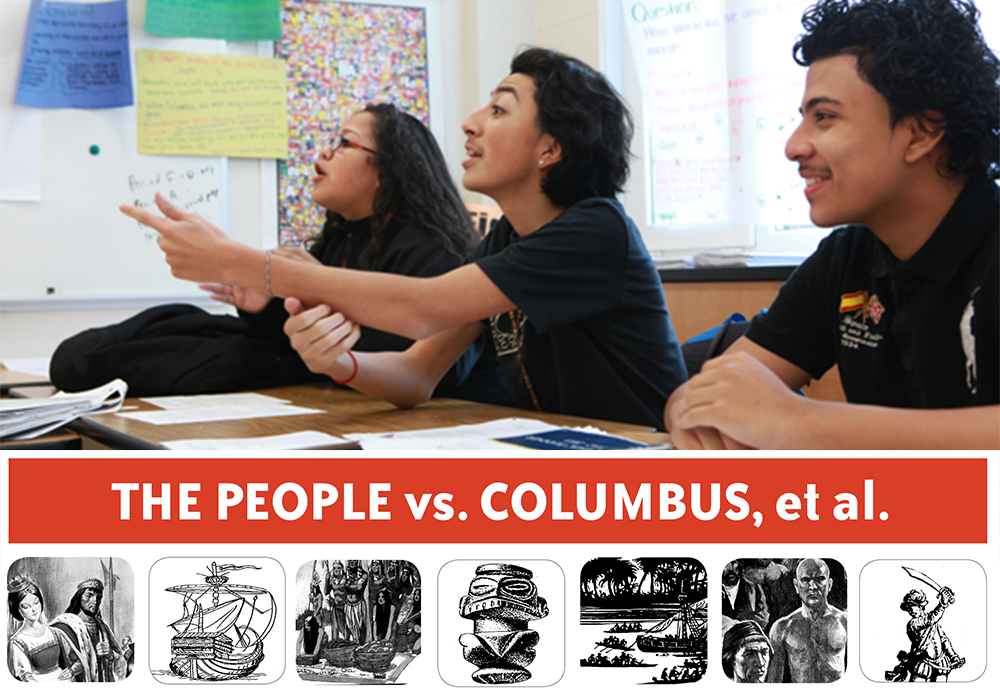The People vs. Columbus trial has been my most successful and popular lesson in the two years I taught it. Not only do students get to learn the extent of the atrocities committed by Spanish colonizers, but they get to engage in higher order thinking (one of my grad school buzzwords I think about a lot!) on the factors that cause historical atrocities to occur.
I LOVE how “the system of empire” is one of the options for students to blame or defend. This has generated some of the most challenging discussions I’ve seen in my class so far, as students say, “The king and queen would not have sent Columbus if they hadn’t been acting within the system!” and retort, “But the system is made up of individuals, and each have their own choices!” This thinking about structure vs. agency is a level of thinking in social studies that was not made explicit to me until college, and I am thrilled that this assignment has given my students an opportunity to delve into core disciplinary questions.
They get excited about it, too ― I’ve had students leap up in the trial, hollering their positions to each other in attempts to convince a jury of their peers. At the end of the trial this year, as the jury came back with the verdict, one of my students reflected, “I think that Columbus is like Trump, and the Tainos are like the Mexican people…” This prompted a discussion about how colonial-type oppression works in our current society, leading one student to observe, “You know, I think WE live within a system.” I asked them if they thought that they had any agency within the system, and they had a really thoughtful conversation about it.
Your resources truly fill a well left dry – not by forgetfulness, but by the same racist systems that perpetuate the injustices my students face on a daily basis in schools.







Twitter
Google plus
LinkedIn